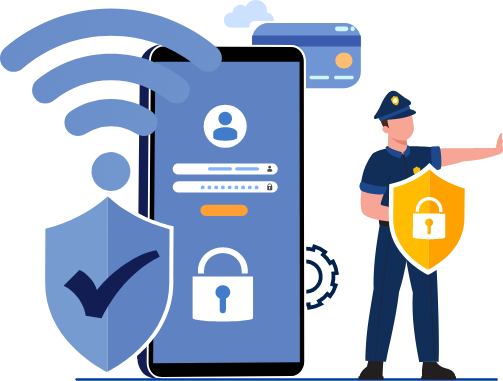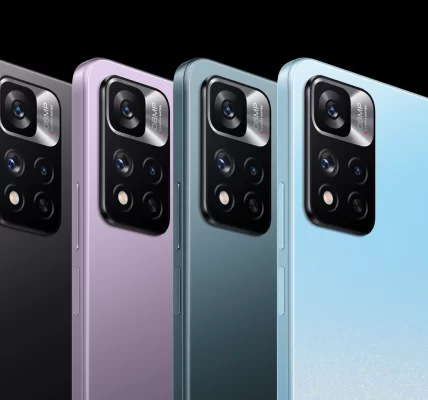Go Incognito and Explore Freely: Unveiling the Best VPNs for Devices If you’re looking for a way to browse the web anonymously and explore freely, then you’ll need a VPN. A VPN, or virtual private network, is a tool that allows you to mask your IP address and encrypt your traffic. This means that your ISP and government agencies can’t track your online activity. There are many VPNs to choose from, but not all of them are created equal. In this article, we’ll unveil the best VPNs for devices.
Importance of privacy and security in the digital age
With the ever-growing importance of the internet in our daily lives, it’s no surprise that privacy and security have become major concerns. As we increasingly rely on online services for everything from shopping to banking to communication, we are exposing ourselves to a whole host of risks.
One of the most effective ways to protect yourself online is to use a virtual private network, or VPN. A VPN encrypts your internet traffic and routes it through a server in another location, making it much harder for anyone to track or intercept your data.
Brief explanation of how VPNs work
A VPN, or Virtual Private Network, is a private network that encrypts and transmits data while it travels from one place to another. A VPN allows users to send and receive data across shared or public networks as if their computing devices were directly connected to the private network. Applications running across a VPN may therefore benefit from the functionality, security, and management of the private network.
A VPN connection provides a high level of security for data transmitted over public networks, such as the Internet. When a VPN is used, data is encrypted before it leaves the user’s device, ensuring that no one can read it as it travels to the VPN server. The data is then decrypted at the VPN server before it is forwarded to its final destination. This process provides a high level of security for data transmitted over public networks.
A VPN can also be used to access region-locked content. By connecting to a VPN server in a different country, users can bypass geo-restrictions and access websites that would otherwise be unavailable.
A VPN is a versatile tool that can be used for a variety of purposes. In addition to providing a secure connection for data transmitted over public networks, a VPN can also be used to access region-locked content, bypass geo-restrictions, and protect your online privacy.
Protecting sensitive data from hackers and cybercriminals
The internet is a great place to find information and connect with others, but it’s also a playground for cybercriminals. They can use your personal information for identity theft, fraud, and other malicious activities. That’s why it’s important to take steps to protect your sensitive data from hackers and cybercriminals.
One way to do this is to use a virtual private network (VPN). A VPN encrypts your internet traffic and routes it through a server in another location, making it difficult for anyone to track or intercept your data.
There are many VPNs to choose from, but not all of them are created equal. Some don’t encrypt your traffic, while others keep extensive logs of your activities. That’s why it’s important to do your research before selecting a VPN.
To help you out, we’ve compiled a list of the best VPNs for devices. These VPNs offer strong encryption, don’t keep logs, and have a proven track record of protecting their users’ data.
FastestVPN:
FastestVPN is a popular VPN service with a strong focus on security. It uses military-grade encryption to protect your data, and it doesn’t keep any logs of your activities. FastestVPN also offers a double VPN feature, which routes your traffic through two VPN servers for extra security.
Benefits of VPNs for Device Security
A VPN, or Virtual Private Network, is a type of security software that allows you to protect your online privacy and browse the internet anonymously. A VPN encrypts your internet traffic and routes it through a secure server, hiding your IP address and location from anyone who tries to track you online.
There are many benefits of using a VPN, but one of the most important is that it can help to improve your device security. When you connect to the internet through a VPN, all of your traffic is encrypted, making it much more difficult for hackers to intercept your data or track your online activity.
In addition, a VPN can also help to protect your online privacy by hiding your IP address from websites and advertisers. By using a VPN, you can browse the internet anonymously and safely, without having to worry about your personal information being collected or sold.
If you are looking for a VPN to improve your device security, there are a few things to keep in mind. First, make sure to choose a VPN that uses strong encryption, such as AES-256. Second, look for a VPN that offers a strict no-logs policy, so your online activity cannot be tracked or monitored.
Finally, choose a VPN with a large network of servers, so you can always find a fast and reliable connection. With so many great VPNs on the market, it’s easy to find one that meets all of your needs.
Compatibility with various devices
We all know how frustrating it is when we can’t access our favorite website or app on our phone or tablet. It’s even worse when we’re trying to access it on a public Wi-Fi network. That’s why it’s important to have a VPN that is compatible with all of your devices.
A VPN, or virtual private network, is a secure tunnel between your device and the internet. VPNs encrypt your traffic and mask your IP address, so your online activity is private and your location is hidden. This is especially important when you’re using public Wi-Fi, since anyone on the same network can see what you’re doing.
There are many different VPNs on the market, and not all of them are compatible with all devices. Some only work with certain operating systems, while others only work with certain browsers. To make things even more complicated, some VPNs only work with certain types of devices, such as phones or computers.
These are just a few of the many VPNs that are compatible with all devices. Be sure to do your research to find the VPN that best meets your needs.
Step-by-step guide for installing a VPN on popular devices (e.g., Windows, macOS, Android, iOS)
A virtual private network, is a vital tool for protecting your online privacy. A VPN encrypts your internet traffic and routes it through a server in another location, masking your real IP address and making it difficult for third parties to track your online activity.
There are many different ways to set up a VPN, and there are many different reasons for doing so. In this article, we’ll take a look at some of the most popular devices and how to install a VPN on each one.
Windows
Installing a VPN for Windows is a fairly straightforward process. There are many different VPN providers out there, so make sure to do your research and choose one that best suits your needs. Once you’ve chosen a provider, follow these steps to get started:
1. Download and install the VPN software from the provider’s website.
2. Open the software and sign in with your account credentials.
3. Choose a server location and connect to it.
macOS
Installing a VPN on macOS is similar to the process on Windows. Again, there are many different VPN providers out there, so make sure to do your research and choose one that best suits your needs. Once you’ve chosen a provider, follow these steps to get started:
1. Download and install the VPN software from the provider’s website.
2. Open the software and sign in with your account credentials.
3. Choose a server location and connect to it.
Android
There are two different ways to install a VPN on Android. The first is to use an app from the Google Play Store, and the second is to manually set up a connection.
If you choose to use an app from the Google Play Store, there are many different options to choose from. Again, make sure to do your research and choose a reputable provider. Once you’ve found android VPN app that you like, follow these steps to get started:
1. Download and install the app from the Google Play Store.
2. Open the app and sign in with your account credentials.
3. Choose a server location and connect to it.
Conclusion
A VPN, or virtual private network, is a service that creates a secure, encrypted connection between your device and the internet. VPNs are essential for protecting your privacy and security online, and are also great for accessing blocked content and streaming videos and music. There are a number of different VPNs to choose from, so it can be tricky to know which one is the best for your needs. In this article, we have compiled a list of the best VPNs for devices, based on our expert reviews and ratings. To find the best VPN for your needs, you first need to decide what type of device you are using.



